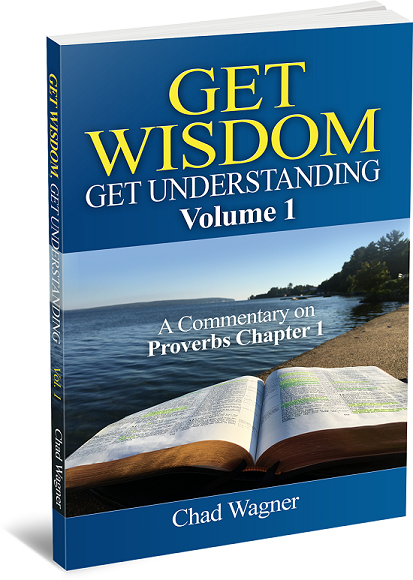Subscribe to Pastor Wagner's Blog
Blog - Proverbs 1:1

The author of the book of Proverbs is identified in the first verse: Solomon the son of David, king of Israel. As was mentioned in the introduction, a proverb is "a short pithy saying in common and recognized use; a concise sentence, often metaphorical or alliterative in form, which is held to express some truth ascertained by experience or observation and familiar to all; an adage, a wise saw" (OED). A proverb therefore expresses truth via a wise, short saying by a man who ascertained it by experience. It is a difficult task to explain truth in few words; therefore he who speaks a proverb (a short, wise saying) must be endowed with wisdom and understanding to let his words be few, for "he that hath knowledge spareth his words" (Pro 17:27), but "a fool's voice is known by multitude of words" (Ecc 5:3). Any fool can speak endlessly and say nothing, but only a wise man can speak profound truth in few words. William Lane Craig in his book Reasonable Faith wrote, "We should know our subject profoundly and share it simply." Albert Einstein reportedly stated that "everything should be made as simple as possible, but not simpler," and "if you can't explain it simply, you don't understand it well enough." Aristotle, one of the greatest philosophers the world has ever known, allegedly said, "Think as wise men do, but speak as the common people do." In that it takes an exceedingly wise man to speak insightful proverbs, Solomon was the most fit candidate to author this book of wisdom. When Solomon became heir to the throne of his father David, the Lord appeared to him in a dream and asked him what He should give him (1Ki 3:5). Solomon knew that he was young and that judging the nation of Israel was a daunting task, so rather than asking for long life, riches, or the lives of his enemies, Solomon asked for an understanding heart (1Ki 3:7-9). God was so impressed with Solomon's request that He made him the wisest man that ever walked the earth, save the Lord Jesus Christ (Luk 11:31).
1Ki 3:12 - Behold, I have done according to thy words: lo, I have given thee a wise and an understanding heart; so that there was none like thee before thee, neither after thee shall any arise like unto thee. 1Ki 4:29 - And God gave Solomon wisdom and understanding exceeding much, and largeness of heart, even as the sand that is on the sea shore. 1Ki 4:30 - And Solomon's wisdom excelled the wisdom of all the children of the east country, and all the wisdom of Egypt. 1Ki 4:31 - For he was wiser than all men...
Solomon was so wise and so prolific that he "spake three thousand proverbs" (1Ki 4:32). Considering that there are 915 verses in the book of Proverbs, and the actual proverbs begin in chapter 10 (Pro 10:1), Solomon spoke well over three times as many proverbs as are recorded in the book of Proverbs. Given his reputation, it should come as no surprise that these are "the proverbs of Solomon the son of David, king of Israel."